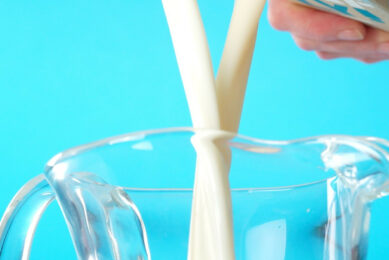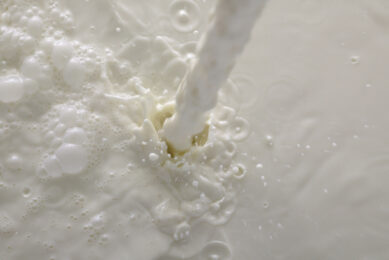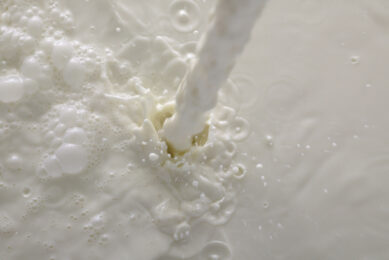Sluggish Chinese economy causes dairy price decline

Dairy auction prices have slipped recently. The chief catalyst for the ongoing price decline is the unexpectedly sluggish Chinese economy, says senior agri economist Nathan Penny of Westpac NZ.
Dairy auction prices have slipped on the auction of 19 July. Overall prices fell 1%, while key whole milk powder (WMP) prices dipped 1.5%. The price fall was broad based – 4 out of the 5 products on offer posted price falls.
Cheddar – largest drop in price
Cheddar prices posted the largest fall (down 10.1%) and continue their descent from recent highs. Prices have now fallen nearly 16% over the last 3 auctions. Only anhydrous milk fat prices bucked the trend, rising 3.4%.
According to agri economist Penny, the result was largely in line with expectations. “We had pencilled in a 3% whole milk powder price fall late recently, while the futures market, immediately ahead of the auction, had expected WMP prices to fall by around 2%”, he says. “Looking over a longer period, the downward price trend is clear and has been sustained much longer than we expected.”
Penny points out that overall prices have fallen at 10 of the 14 auctions held this year. “And overall and WMP prices are down 22%, and 17% in annual change terms. In contrast, we had expected that prices would have bottomed by now, if not begun to turn higher.”
The chief catalyst for the ongoing price decline is the unexpectedly sluggish Chinese economy, he says. “Indeed, we have made significant downward revisions to our forecasts for Chinese economic growth this year.”
“As recently as last month, we expected economic growth for 2023 of 6.2%. Since then, we have cut the forecast to 5.7%. And this week’s June quarter GDP data indicate further downside risks to that number,” says Penny, adding that the downgrades and the ongoing dairy price weakness signal clear downside risks to the 2023-2024 milk price forecast of NZ$8.90 (US$5.50) per kg milk solids.
In Australia, farmers and the Australian Competition and Consumer Commission (ACCC) have raised concerns about a deal that could see a major supermarket, Coles, control a large part of the milk supply chain. Coles wants to buy 2 fresh milk processing facilities owned by Saputo, at Laverton North in Victoria and Erskine Park in New South Wales, for AUS$105 million (US$71 million).
Each facility has a process capacity of 225 million litres a year. They already process Coles-brand milk products. Farmers are worried the deal will give Coles too much control over the milk price. The ACCC plans to investigate the potential sale in New South Wales.
Carbon reduction targets
New Zealand dairy giant Fonterra has announced new ambitions for its carbon reduction targets. Fonterra CEO Miles Hurrell says the Co-op is targeting a 50% absolute reduction in so-called Scope 1 & 2 emissions by 2030, from a 2018 baseline. This is an increase on its previous target of a 30% reduction by 2030.
The new targets largely come from Fonterra’s manufacturing operations and supply chain, and support its ambition to be net zero by 2050, says Hurrell. To reach the new targets, Fonterra is forecasting an investment of NZ$790 million (US$488 million).
A new free trade agreement of New Zealand and the EU puts pressure on Australian negotiators, who are trying to finalise an agreement of Australia and the EU. One of the main concerns for Australia and the EU is the use of the word ‘feta’, which the EU wants to reserve for their Greek producers.
With respect to dairy, the EU-NZ agreement will also protect the names of cheeses like ‘parmesan’ and ‘gruyere’ for specific EU producers. But there will be a broader continued use right for New Zealanders. Producers will be allowed to continue to use those terms indefinitely, as long as the producer concerned has used it in good faith for at least 5 years.
Join 13,000+ subscribers
Subscribe to our newsletter to stay updated about all the need-to-know content in the dairy sector, two times a week.










